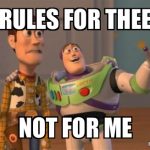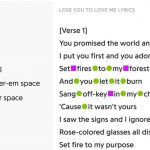
Game On! Bright Data Scores Major Victory in Web-Scraping Dispute with Meta (Guest Blog Post)
by guest blogger Kieran McCarthy Whether it is by accident or because of who he is, Judge Edward Chen of the Northern District of California has a way of finding himself at the center of the most important cases in…

Web Page Framing Isn’t Trespass to Chattels–Best Carpet Values v. Google
This case is an old-school turn-of-the-century throwback (and not the good kind). Google’s search app framed the web pages users visit, and the frame included ads. Some screenshots depicting the framing (the first image shows Google’s superimposed frame on the…
Should Copyright Preemption Moot Anti-Scraping TOS Terms? (Guest Blog Post)
by guest blogger Kieran McCarthy Many characterize the law of copyright preemption of contracts as a circuit split. But that undersells the level of inconsistency in courts’ interpretations of the law of copyright preemption. It’s not that half of federal…

Web Scraping for Me, But Not for Thee (Guest Blog Post)
by guest blogger Kieran McCarthy There are few, if any, legal domains where hypocrisy is as baked into the ecosystem as it is with web scraping. Some of the biggest companies on earth—including Meta and Microsoft—take aggressive, litigious approaches to…

Chegg Is Likely to Prevail on Its Anti-Scraping Contracts Claim…But Doesn’t Get an Injunction–Chegg v. Doe (Guest Blog Post)
by guest blogger Kieran McCarthy Most web-scraping cases fit into one of two categories: Cases where companies are innovating with data in ways that data hosts/owners don’t like, and courts try to accommodate competing interests in accordance with prevailing legal…

Contractual Control over Information Goods after ML Genius v. Google (Guest Blog Post)
by guest blogger Prof. Guy Rub, The Ohio State University Michael E. Moritz College of Law The copyright – contract tension Stewart Brand famously said that information wants to be free. We know, however, that many laws limit free access…

After hiQ Labs, Is Scraping Public Data Legal? (Guest Blog Post)
by guest blogger Kieran McCarthy Last year, the most important case in the history of web scraping—hiQ Labs, Inc. v. LinkedIn Corp.—settled. After two trips to the 9th Circuit, a remand from the Supreme Court, and nearly six years of…
Can Government Agencies Ban Scraping?–NAACP v. Kohn (Guest Blog Post)
by guest blogger Kieran McCarthy For years, open-Internet advocates have argued that scraping bans infringe on First Amendment rights. After all, access to information is a protected form of speech. But since most scraping cases involve two private litigants, and…

2022 Internet Law Year-in-Review
Three dynamics combined to make 2022 a brutal year for Internet Law. First, the techlash is taking its toll. There is widespread belief that the major incumbents are too big, too rich, and too capricious to avoid pervasive government control….
Hello, You’ve Been Referred Here Because You’re Wrong About Web Scraping Laws (Guest Blog Post, Part 2 of 2)
by Kieran McCarthy [Eric’s note: this is the second of a two-part series on the denouement of the hiQ v. LnkedIn case, which ended this week with a total loss for hiQ. The prior part explained the most recent ruling,…
